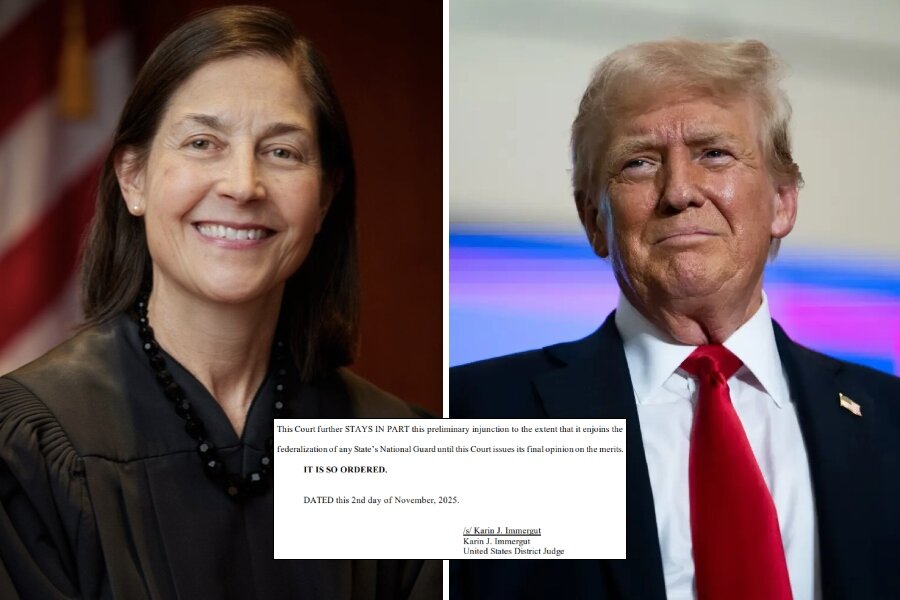A federal judge on Nov. 2 extended an order preventing President Donald Trump from deploying any National Guard troops to deal with violence directed against federal immigration facilities in Portland, Oregon.
Trump had said in a Sept. 27 post on Truth Social that he was sending troops “to protect War ravaged Portland, and any of our ICE Facilities under siege from attack by Antifa, and other domestic terrorists.”
U.S. District Judge Karin Immergut issued the new order two days after concluding a three-day trial on the issue of troop deployment on Oct. 31. In the new order, Immergut extended her prior order blocking the federal government from deploying members of the Oregon, California, and Texas National Guard in Portland.
The plaintiffs—the states of Oregon and California and the city of Portland—are entitled to a preliminary injunction halting troop movements based on “their claims that Defendants’ federalization and deployment of the National Guard violates 10 U.S.C. [Section 12406] and the Tenth Amendment,” the judge said.
Under Title 10, Section 12406 of the U.S. Code, a president may take over, or federalize, National Guard troops on an emergency basis in certain circumstances.
The court specifically blocked Secretary of War Pete Hegseth from implementing a series of memorandums federalizing and deploying members of the Oregon, Texas, and California National Guard, as well as “any memoranda deploying members of any other State’s National Guard to Oregon based on the same predicate conditions that were relied upon to authorize the above orders.”
The president’s use of Section 12406 “was likely not made ‘in the face of the emergency and directly related to the quelling of the disorder or the prevention of its continuance,'” the judge said, citing a Supreme Court precedent.
“Critically, the credible evidence at trial established that following a few days in June, which involved the high watermark of violence and unlawful activity outside the Immigration and Customs Enforcement building in Portland, Oregon, the protests outside the ICE facility between June 15 and September 27, 2025, were generally uneventful with occasional interference to federal personnel and property,” she said.
When there were occasional cases of lawbreaking, federal and local law enforcement were able to arrest and prosecute suspects, she said.
The court found no credible evidence that in the two months leading up to federalization that “protests grew out of control or involved more than isolated and sporadic instances of violent conduct.”
The violence that did take place in that time period was mostly between protesters and counter-protesters, the judge added.
Immergut said she will release a final opinion on the merits of the case by 5 p.m. on Nov. 7.
Share your thoughts by scrolling down to leave a comment.













